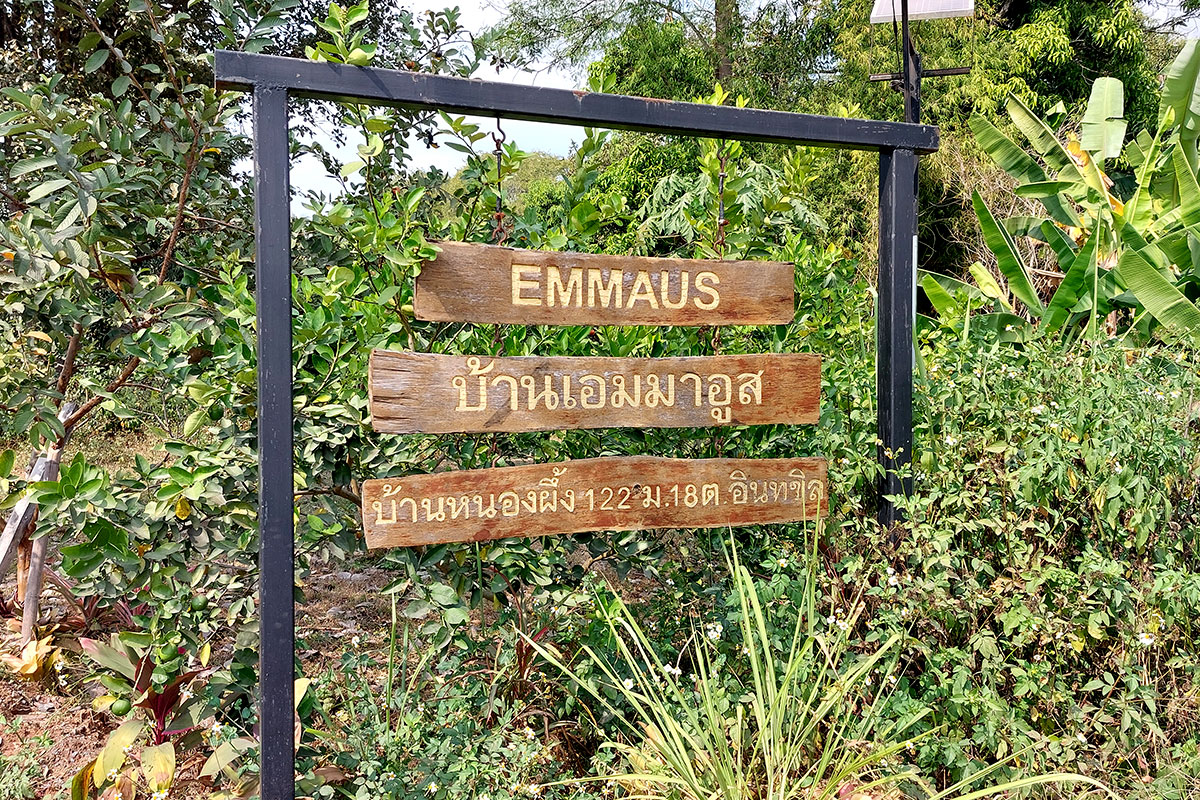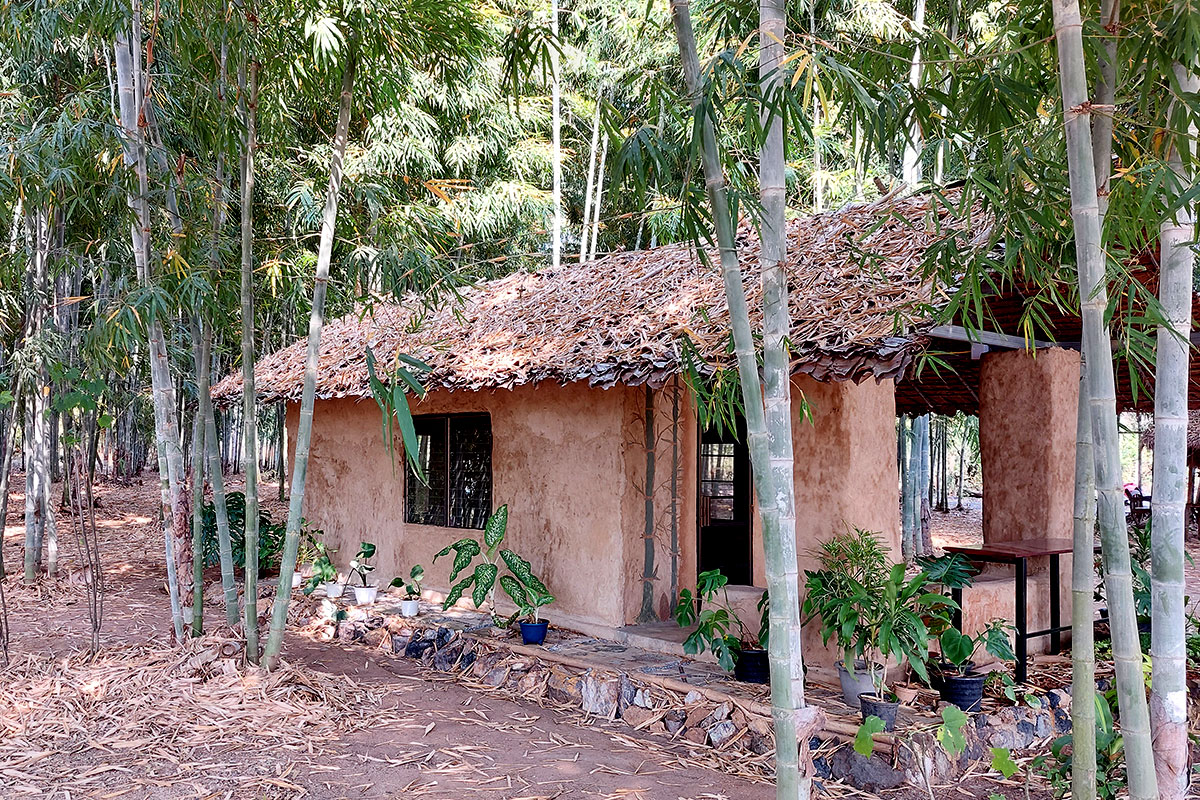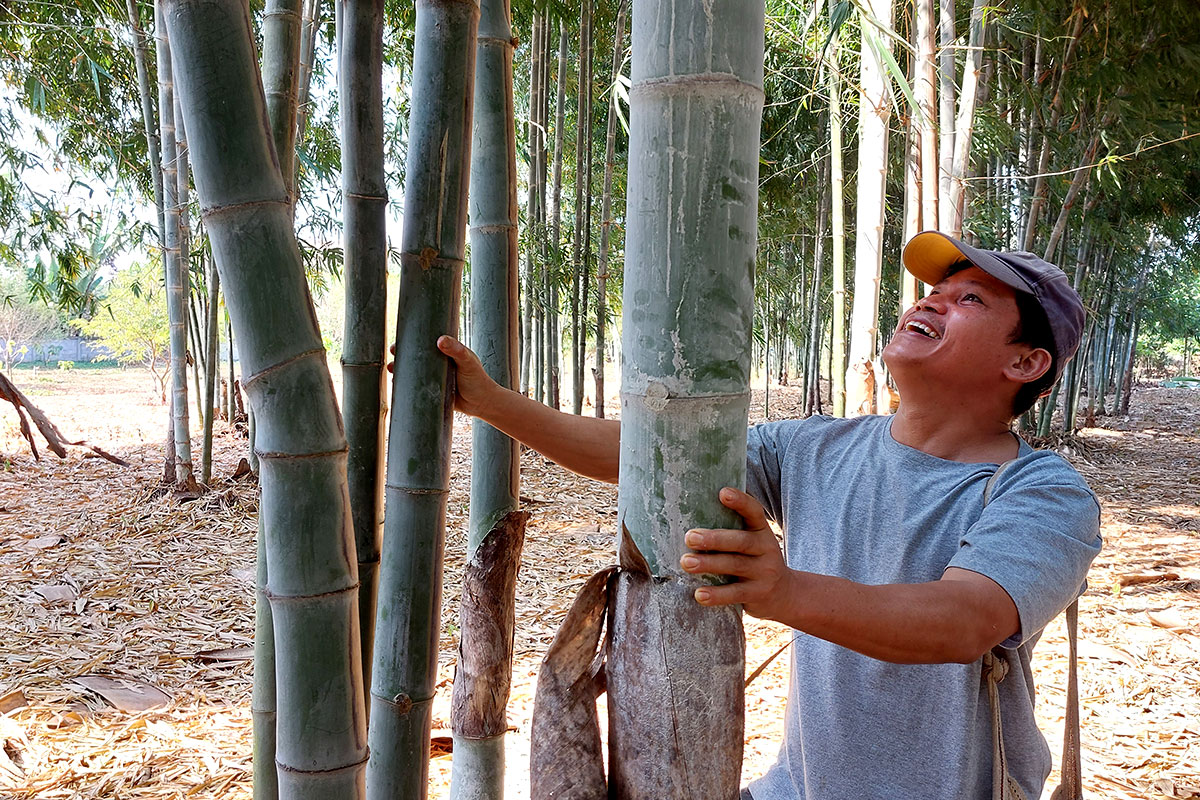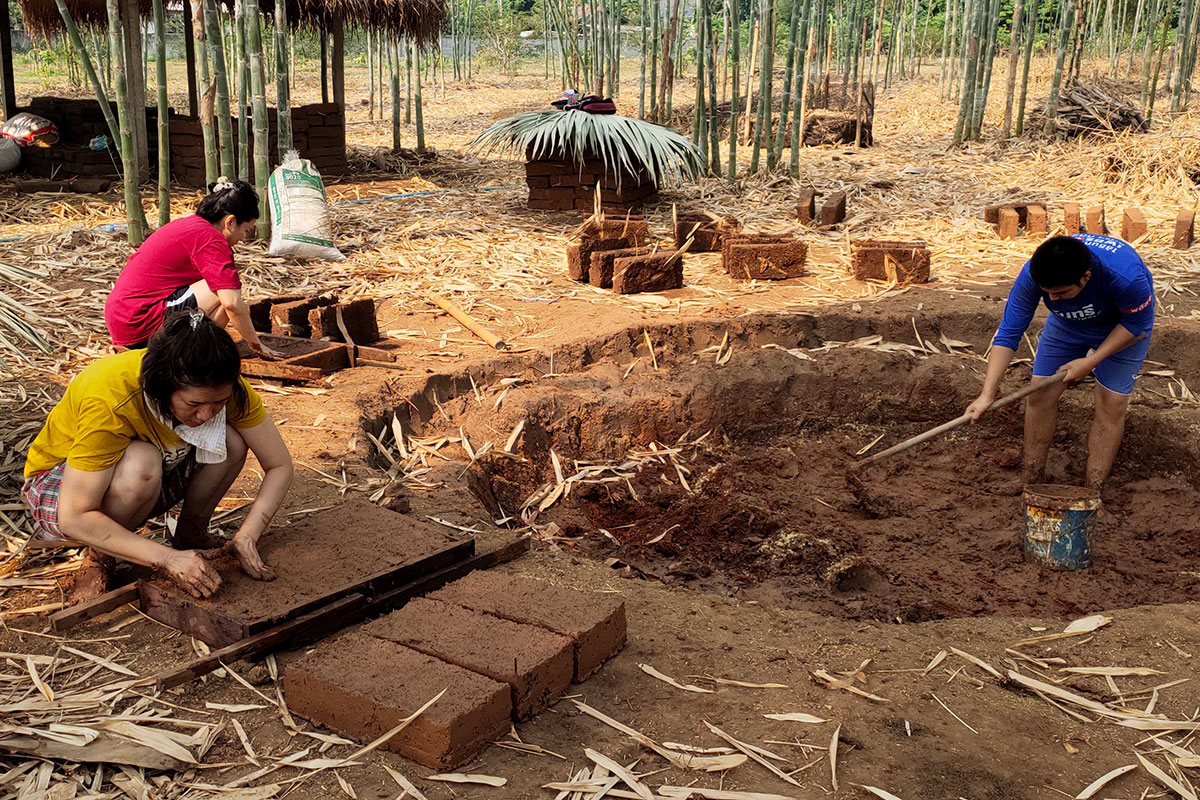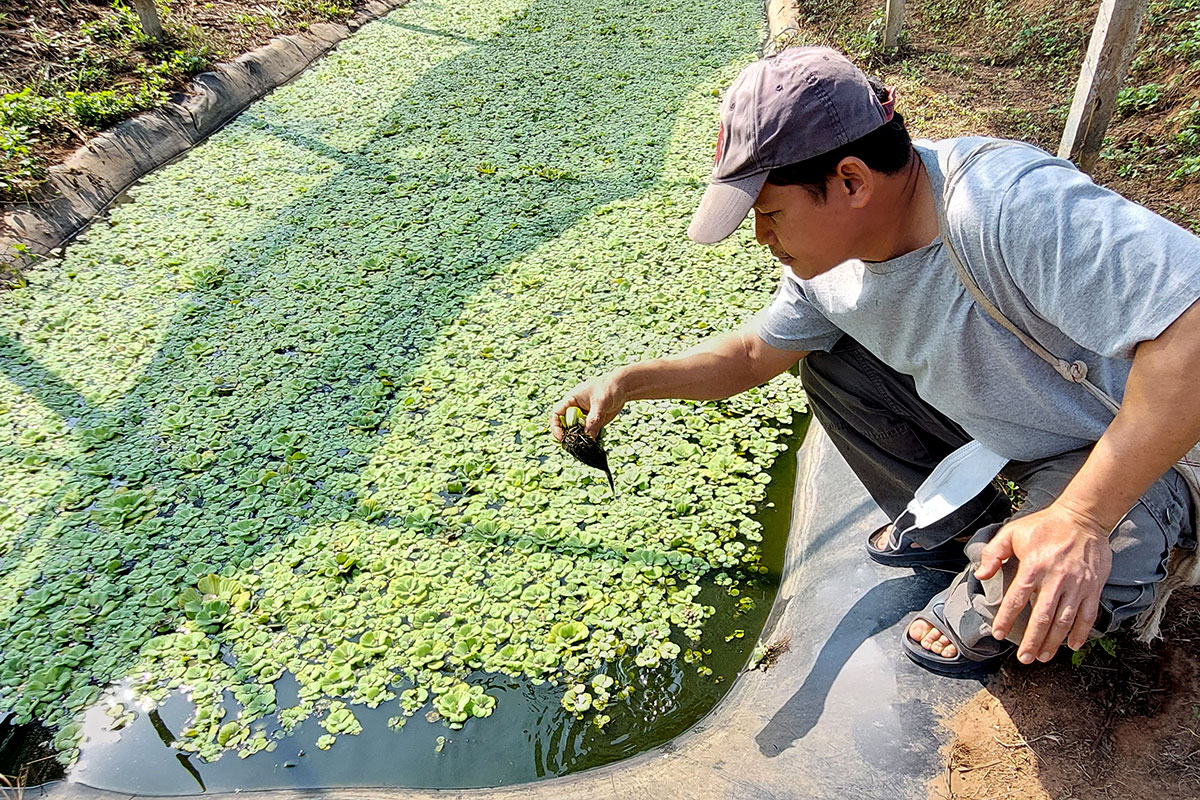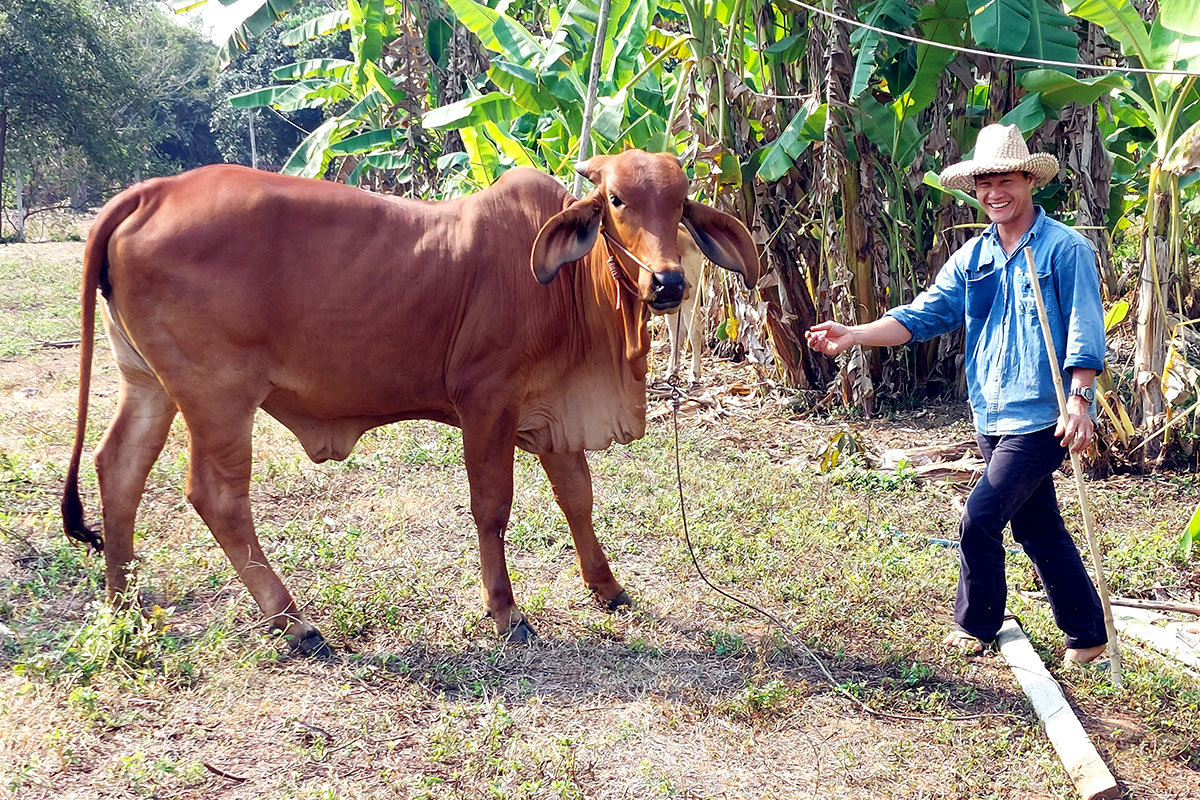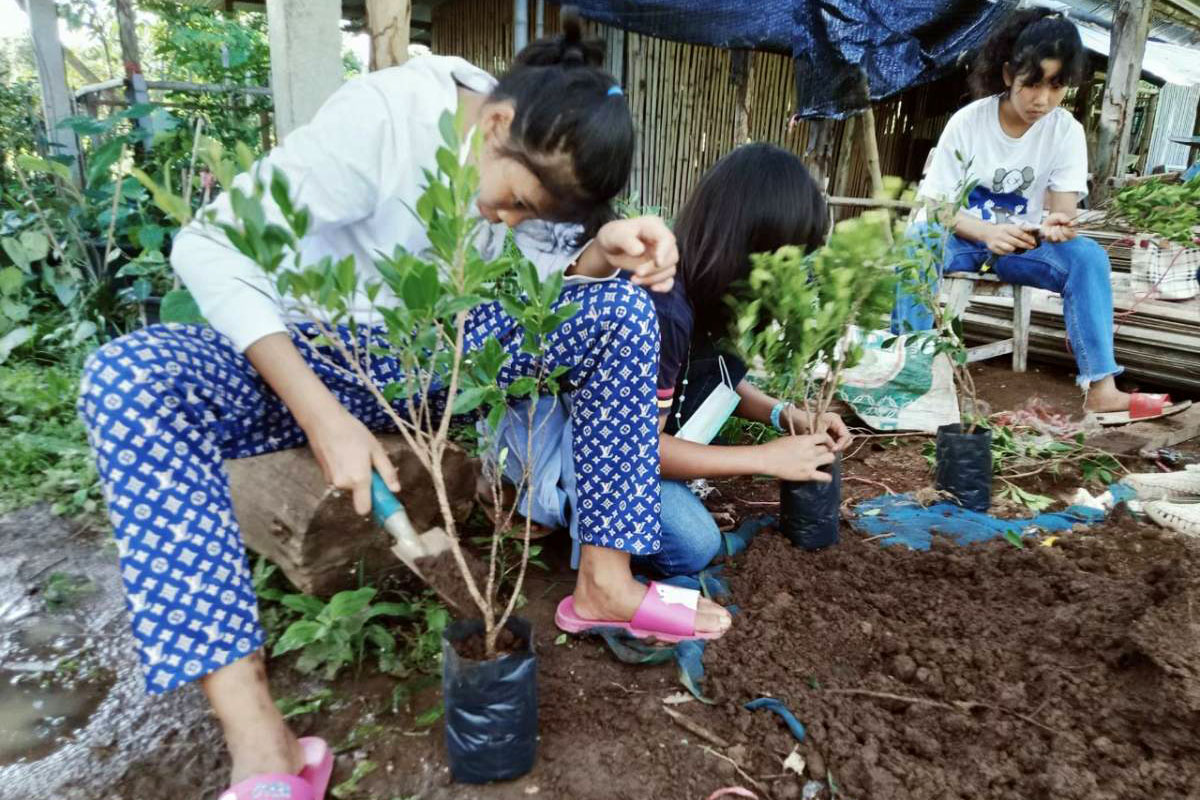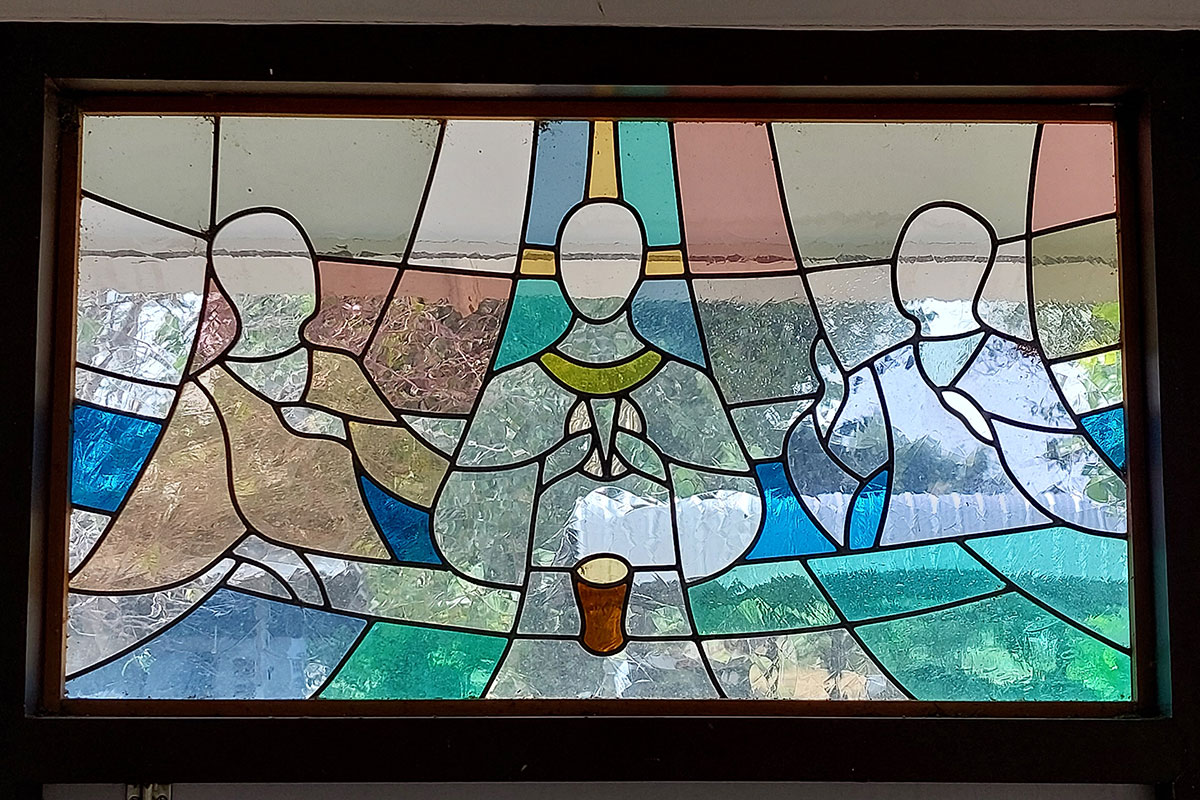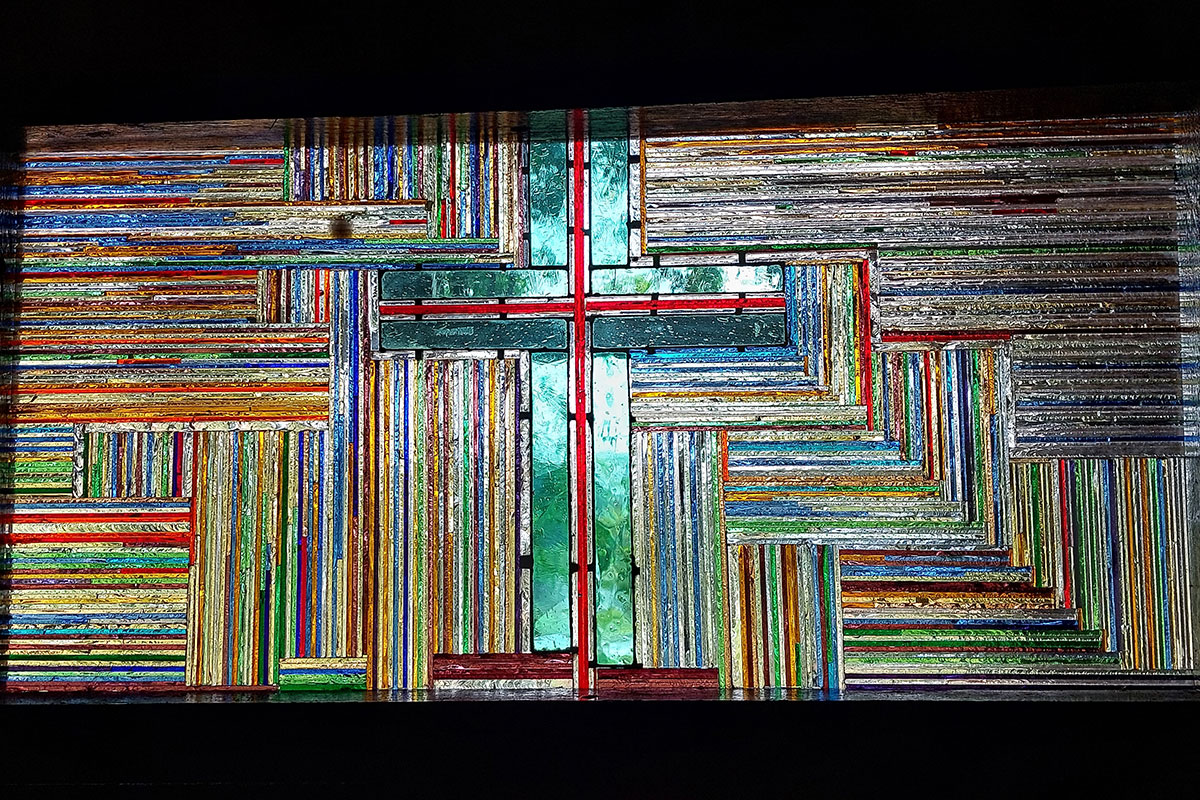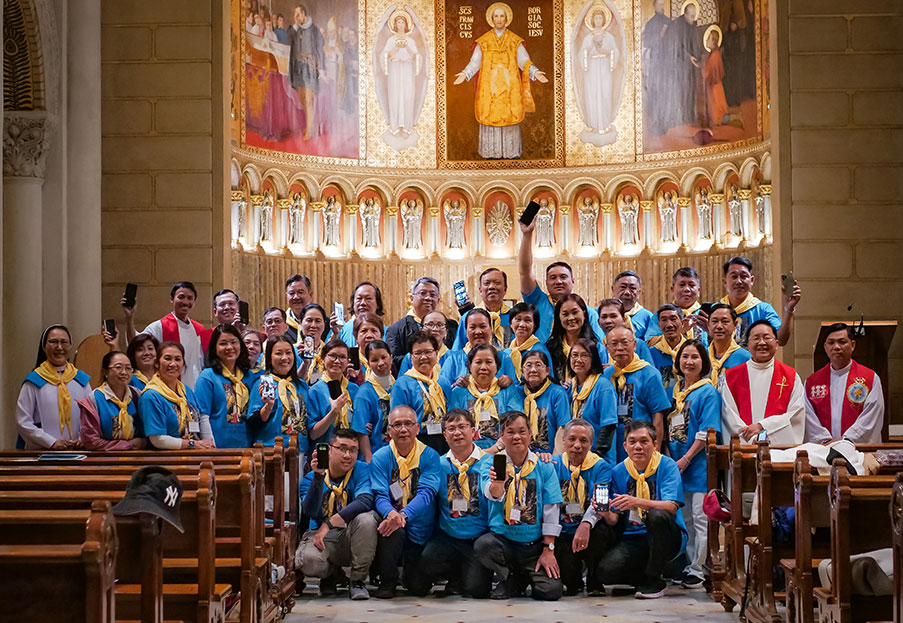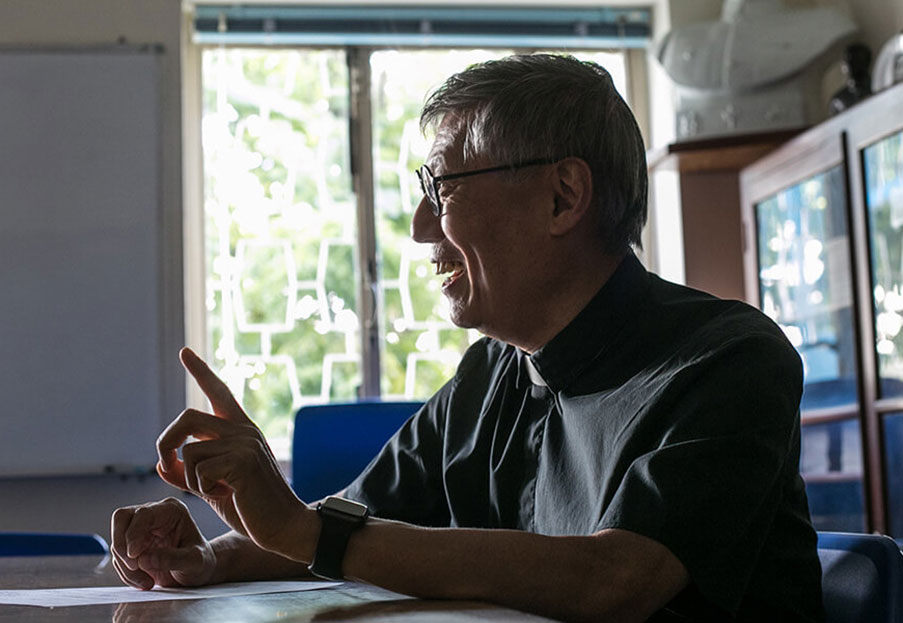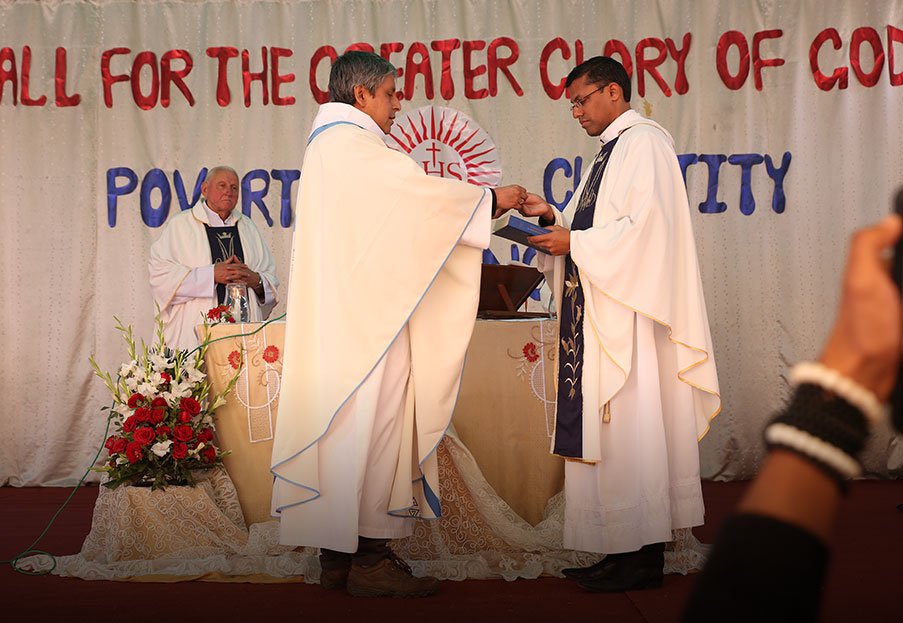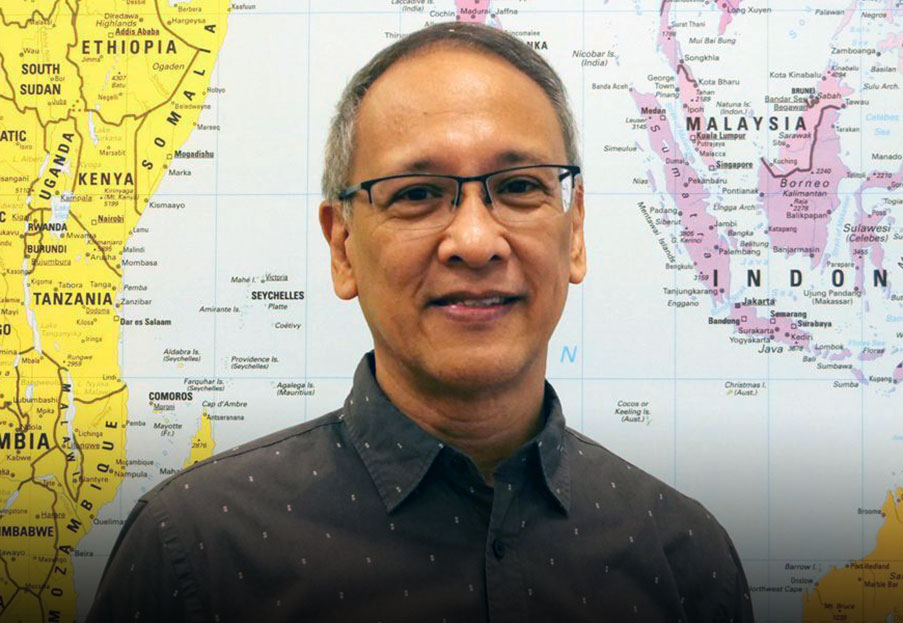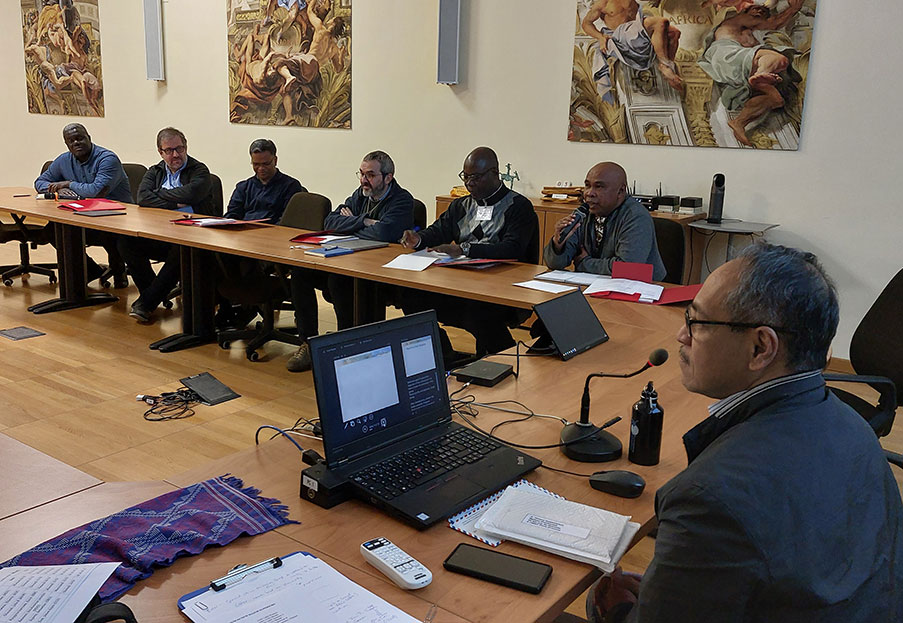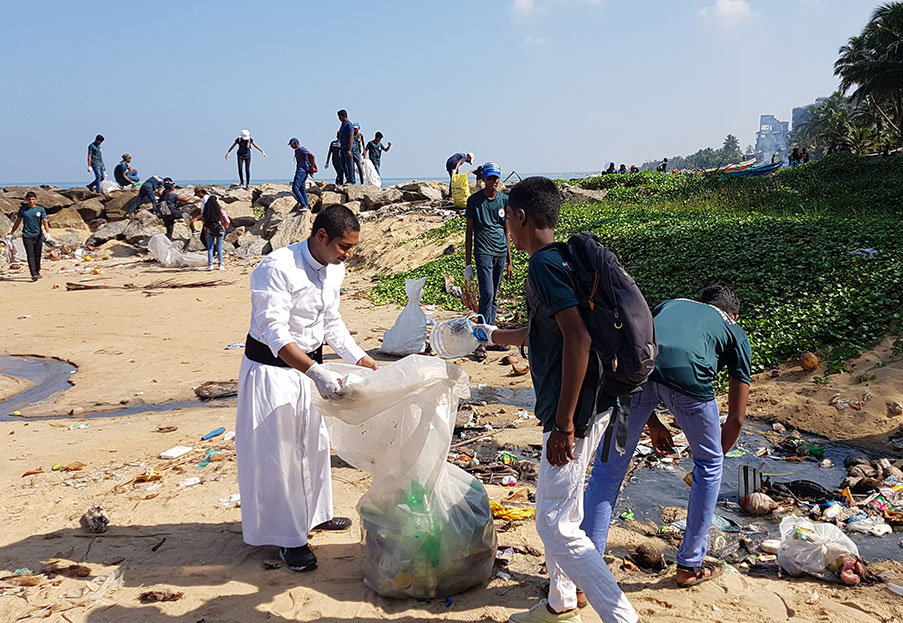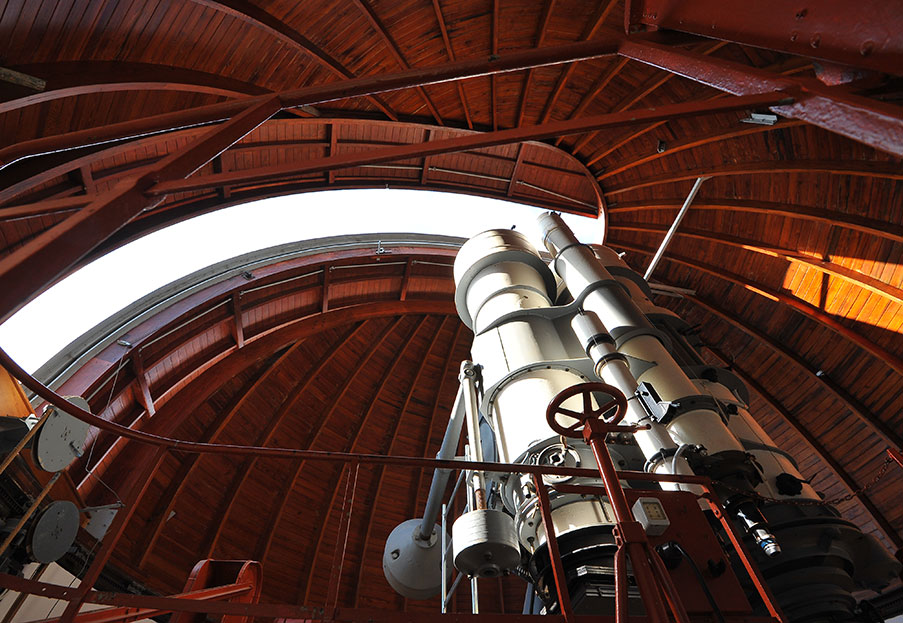On the road to Emmaus in Thailand… a road to an ecological future
The Jesuit Prison Ministry in Thailand has been given a piece of land in the Chiang Mai area. How might this help the prisoners? A transition house perhaps, a place to learn about organic farming? The encyclical Laudato Si’ and the pandemic have opened new avenues. Let us hear about it from the initiator and director, Ms Vilaiwan Phokthavi, known as Kep.
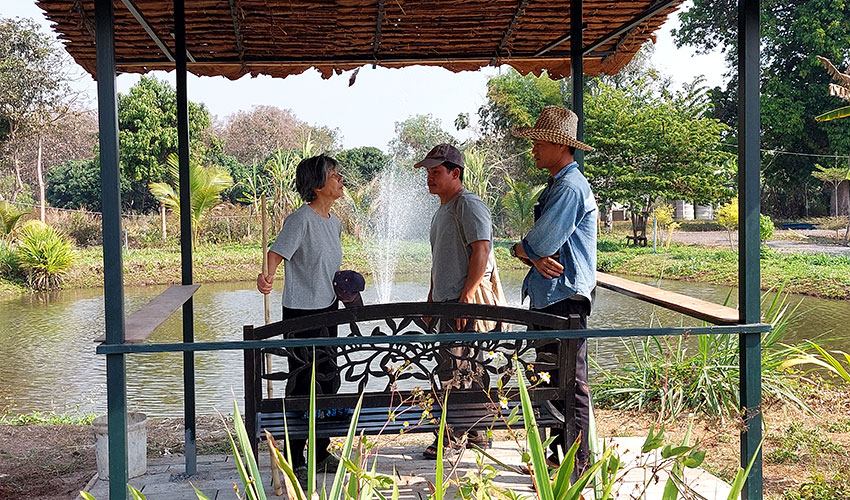
Kep with Nuek and Ken, her two agricultural specialists.
On our way through life, we can suddenly lose hope, the world seems to be falling apart, everything is upside down. There is no more room for our dreams, we are upset, totally lost. Prisoners and other people who have been hurt by life certainly go through such trying moments.
When people come to us, we hope that they can find Jesus. He is the one who comes to talk with us, to be with us, and to gently show us the right way, the true way. When we understand this, we can enjoy our life, even if it is difficult. Isn’t this the experience of the disciples on the road to Emmaus in Luke’s gospel?
You were in social work, and you used to visit lonely and forgotten prisoners. How did you become a farm manager?
Most
of the work I was responsible for, along with Fr Olivier Morin, was in the
prisons in the Bangkok area, but we had already started visiting prisoners in
Chiang Mai in 2014. Someone offered us a piece of land only 10 km from that
prison. I believed - and so did the Jesuits in Thailand - that this was a call
from God to create something new. So we started in 2016 with two men from the northern
Karen tribe, Mr Ken and Mr Somnuek, who had experience in agriculture. With
prayer and trust we launched this social and environmental project. Surprisingly,
through God’s providence, we received everything we needed for its development.
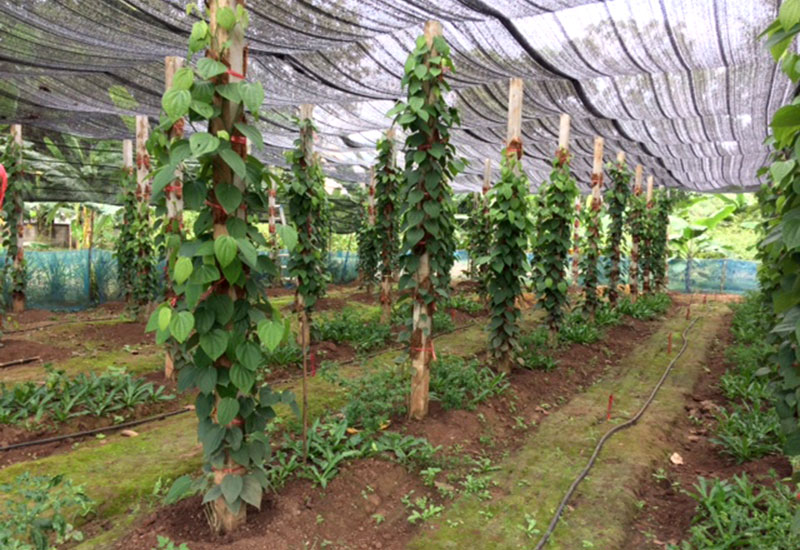
The pepper plantation, created by ex-prisoner Sun.
Who benefits from this project?
Our aim has been to support former prisoners or persons on parole; we want to offer them a path to a new life. There have been a few so far, but the prison authorities have not been very open. Right now, we have a couple of hurting people living here for a few months. We trust that by working on our “farm” they will be able to see more clearly what to do with their lives. Some have really made progress.
I think, for example, of Mr Arsun and the pepper plant project. During his 16 years in prison, he had dreamed of a pepper plantation to start his life again. He had in mind to return to his native Myanmar, where his parents had some land. He needed training and support, and he had no one else to turn to, so the Emmaus team took him on as their first ex-prisoner in rehabilitation. Arsun took excellent care of the plants; he learned to make compost and bio-fermented water using the principles of organic farming. After a few months with us, and after getting his status legalized in Thailand, he was ready to leave us and start his own farm. His pepper plantation is still there, benefiting other people in rehabilitation as well as our community.
In what ways did Pope Francis’ encyclicalLaudato Si’ have a strong influence on your project?
Laudato
Si’was published in 2015, shortly before we
started. So from the beginning we chose to focus a lot on nature, on care of
the earth, and on the way we treat our chickens, ducks, and cows. We make our
own compost. But above all, we realised that we could provide an ecological
model for other farmers. Our farm has therefore become a place for raising the
awareness of young people from local schools and even university students from
the Xavier Jesuit Community project
in Chiang Rai. We also participated in an ecological project with JRS (Jesuit
Refugee Service) and the Asia-Pacific Jesuit Conference.
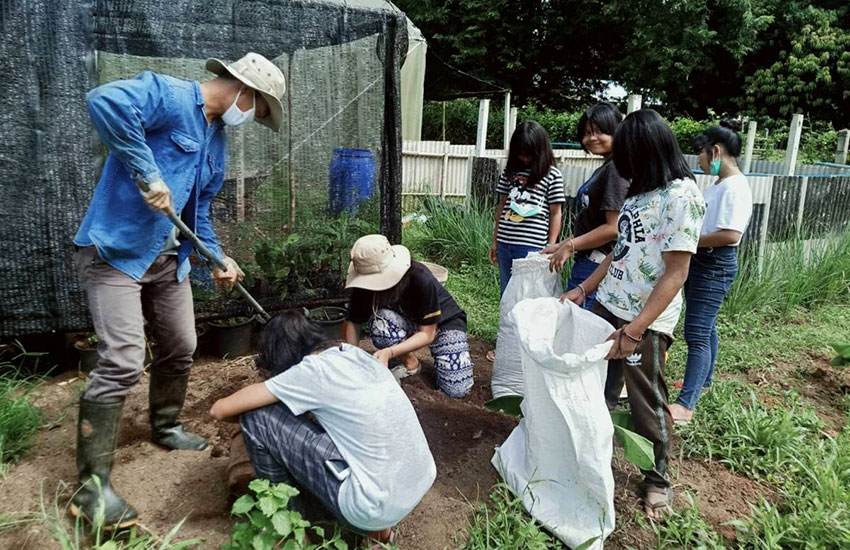
Ecological formation for the youth.
What about the pandemic that affected the whole country for more than two years?
First of all, the pandemic prevented us from visiting the prisoners. When the doors reopened in 2022, we handed over the responsibility for this in Bangkok to Catholic organisations. A Jesuit still visits a detention centre for illegal immigrants. We focused our efforts on the Chiang Mai area in the north. We still visit prisoners in the jail, but our main work is designing a project for environmental awareness and education, the Emmaus Farm.
The pandemic made us realise the importance of the earth, the trees and the plants. Food is essential, and it is wonderful to grow your own food and natural plant remedies. If you lose your job but still have some land, you can survive. You can be productive instead of being idle, not knowing what to do, going crazy with financial, health and other problems. Those who come here understand this and enter into this lively dynamic.
In addition, we feel very much in tune with the broad global vision of the Society of Jesus; we practice the four Apostolic Preferences, especially Caring for our Common Home. We are delighted when we realise that we are invited to share God’s work in creation - a kind of new Garden of Eden! We have been called, and we believe that everything we need will be provided. Our experience, guided by Divine Providence, is quite amazing!
Personally,
as I retrace my steps in this project, I realise that each step inspired me; it
reflected the LOVE of God, of Jesus for me. I can continue my involvement
without too much worry; rather, I do so with joy and hope. “Emmaus” is a word
that illustrates my approach to life. When I am desperate or discouraged, Jesus
comes and shows me the way. He keeps the fire burning in my heart.
